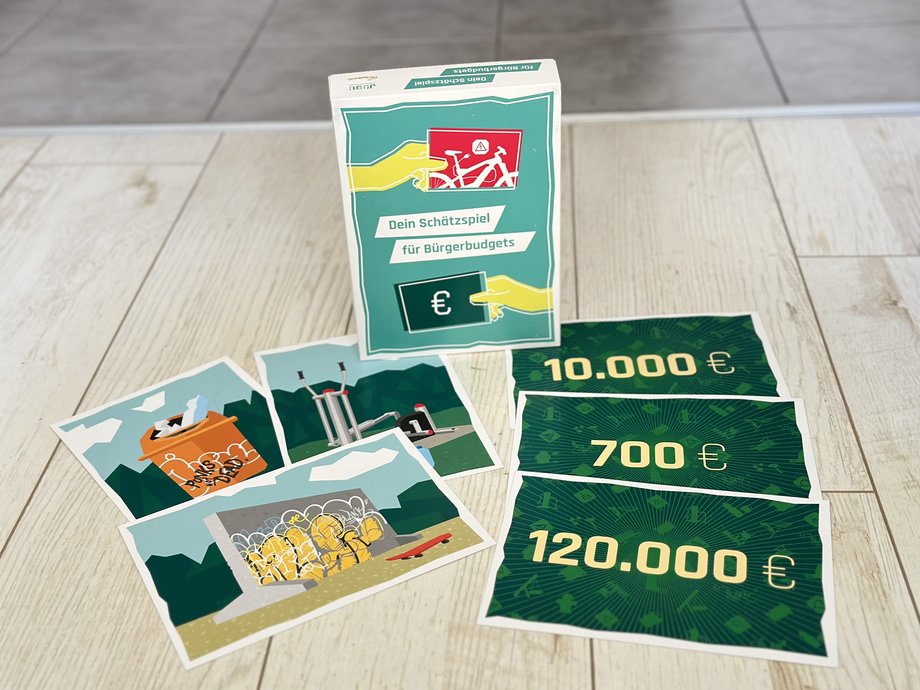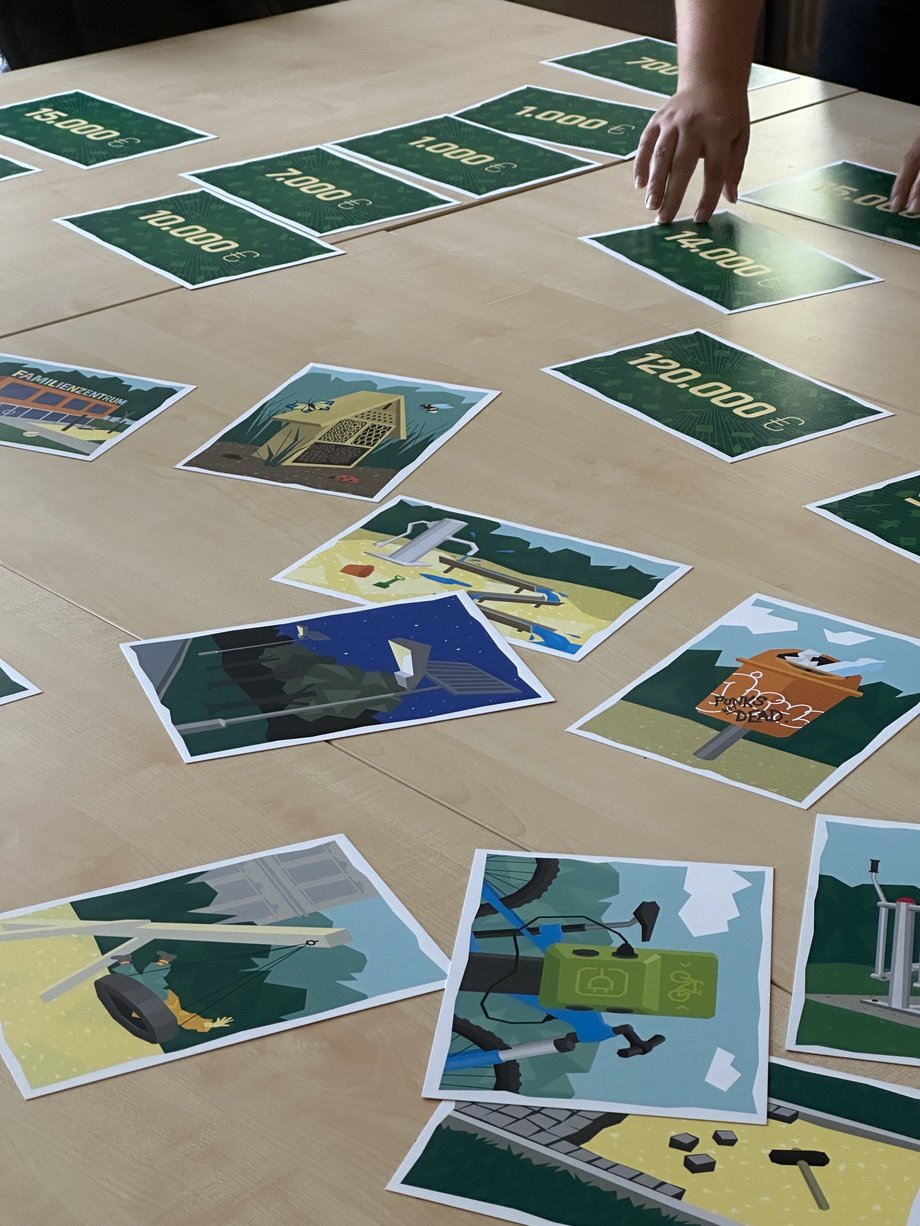Estimation game for citizens' budgets Citizens' budgets - an opportunity for youth participation!
For citizens' budgets, the municipality provides an annual sum of money for charitable projects in the town, e.g. 20,000 euros, 50,000 euros or 100,000 euros. All residents can submit proposals and take part in the vote on how the money is distributed. For example, it could be sports equipment in public spaces, a pavilion as a meeting place or a small street festival. However, young people are often underrepresented. The JUBU pilot project aims to change this and offers educational professionals materials and support for involving young people between the ages of 16 and 26 in citizens' budgets. Citizens' budgets allow local residents to submit proposals that serve the common good. Cost ceilings often have to be observed. The estimation game is designed to help estimate costs. This can be useful when it comes to submitting a proposal for your own local citizens' budget.
Special thanks to JUBU for providing our laboratory with a free copy!
Link to the estimation game:https://jugend-budget.de/schaetzspiel/
Number of participants
for groups over and under 30 people
Age recommendation
from 16 years
Duration
variable
Venue
Seminar room with free table
Setup and procedure
Preparation:
The guessing game contains a total of 30 playing cards; 15 cards show motifs of objects or places in the public space, 15 cards show the cost of the objects. There is also a solution sheet. All 30 cards are shuffled face down. Each player receives one card.
(Please note: If there is an odd number of players or if there are fewer than 30 people playing, pairs of cards may have to be removed. If there are more than 30 people, players can share a card if necessary).
Implementation:
Each motif card has a cost card. The players must discuss and exchange ideas, search for and find each other. After 15 minutes, all pairs should have made a decision. Now the pairs should line up according to the ascending costs and check the correctness of the estimates with the help of the solution sheet and correct them if necessary.
Evaluation:
The following reflection questions, for example, are suitable for this:
- Which pairs found each other very quickly, which took a long time?
- Who was right and who was wrong?
- Which costs are surprising?


